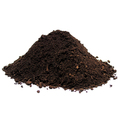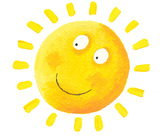Example Lessons
These lessons were designed during my graduate studies at Antioch University New England. I taught the curriculum at Brattleboro Union High School, Brattleboro Area Middle School, The Compass School (Vermont) and the Lehman Alternative Community School (New York).
Mystery Soil Challenge!
|
This is a fun outdoor, hands-on and minds-on lesson that gets students examining different soil types to match them to the known soil types that I dug. Some of the best conversations come when asking students to identify why they chose a particular soil. The data collected is one of many experiments that will help to identify a mystery soil collected from within 10 miles of the school.
|
|
Soil Food Web Challenge Board
|
|
This challenge board served as a way to evaluate my own teaching as well as my students learning about the soil food web. Their assignment was to complete one of the following challenges, which was to be presented in front of the class the following week. Each student had been researching a soil organism, which they continued researching to complete this assignment. The best part about this assignment is it allows for student choice and authenticity, so they can delve into the life of the soil in a way that suits them best. So far this has produced very high quality work that students can be proud of.
|
What is Heat?
|
Heat is all around us and affects how we live every day! This lesson starts with student misconceptions to help them define heat and differentiate between it and temperature. Students partake in many demonstrations that promote reflective discourse and show heat transfer. I uniquely and effectively challenge students to correctly explain which form of heat transfer is occurring and why.
|
| |||||||||||||
Climate Change - What's The Big Debate?
|
In this lesson I create authentic teaching moments around climate change based on student's misconceptions with the material. I start by asking them to engage others with what they already know before introducing concepts like the greenhouse effect. Students collaborate and learn from their peers through discussion and they improve their moral judgement by engaging in an ethical debate around climate change. Students often reflect upon how their lifestyle might contribute to such an issue.
|
| |||||||



